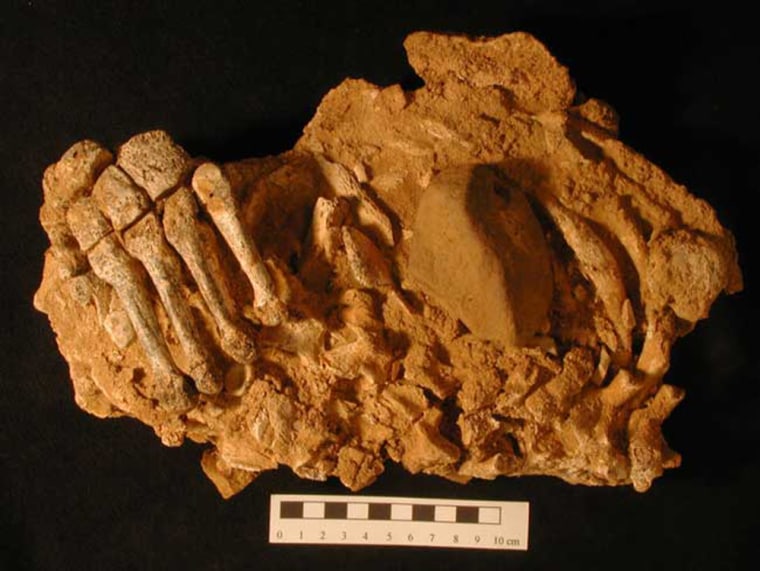Neanderthals suffered periods of starvation and may have supplemented their diet through cannibalism, according to a study of remains from northwest Spain.
Paleobiologists studied samples from eight 43,000-year-old Neanderthal skeletons excavated from an underground cave in El Sidrón, Spain since 2000. The study sheds light on how Neanderthals lived before the arrival of modern humans in Europe.
Researchers found cut marks and evidence that bones had been torn apart, which they say could indicate cannibalism.
"There is strong evidence suggesting that these Neanderthals were eaten," said the study's lead author, Antonio Rosas of the Museo Nacional de Ciencias Naturales in Madrid. "That is, long bones and the skull were broken for extraction of the marrow, [which] is very nutritious."
According to Rosas, there is evidence of cannibalism in Neanderthal remains from other European sites.
"I would say this practice… was general among Neanderthal populations," he said.
Teeth from the remains showed evidence of periods of starvation or minimal nutrition, particularly during difficult life transitions like weaning or adolescence, according to Rosas.
Teeth grow by adding thin layers of enamel, but when some change in the natural development of the individual occurs, the enamel is deposited more slowly, or stops altogether, Rosas explained. Outside forces like climate or illness could also affect tooth growth, he said.
"So mostly harsh winters, together with physiological difficulties in the life history of these people may explain what we found," Rosas told LiveScience.
Rosas' team also noticed that southern Neanderthals had wider, flatter faces than northern Neanderthals. Exactly why this variation is seen is still a matter of debate, but according to Rosas the most likely explanation is adaptation to the climate. For example, people exposed to the cold environment of the North may have developed longer noses for heating the air, he said.
